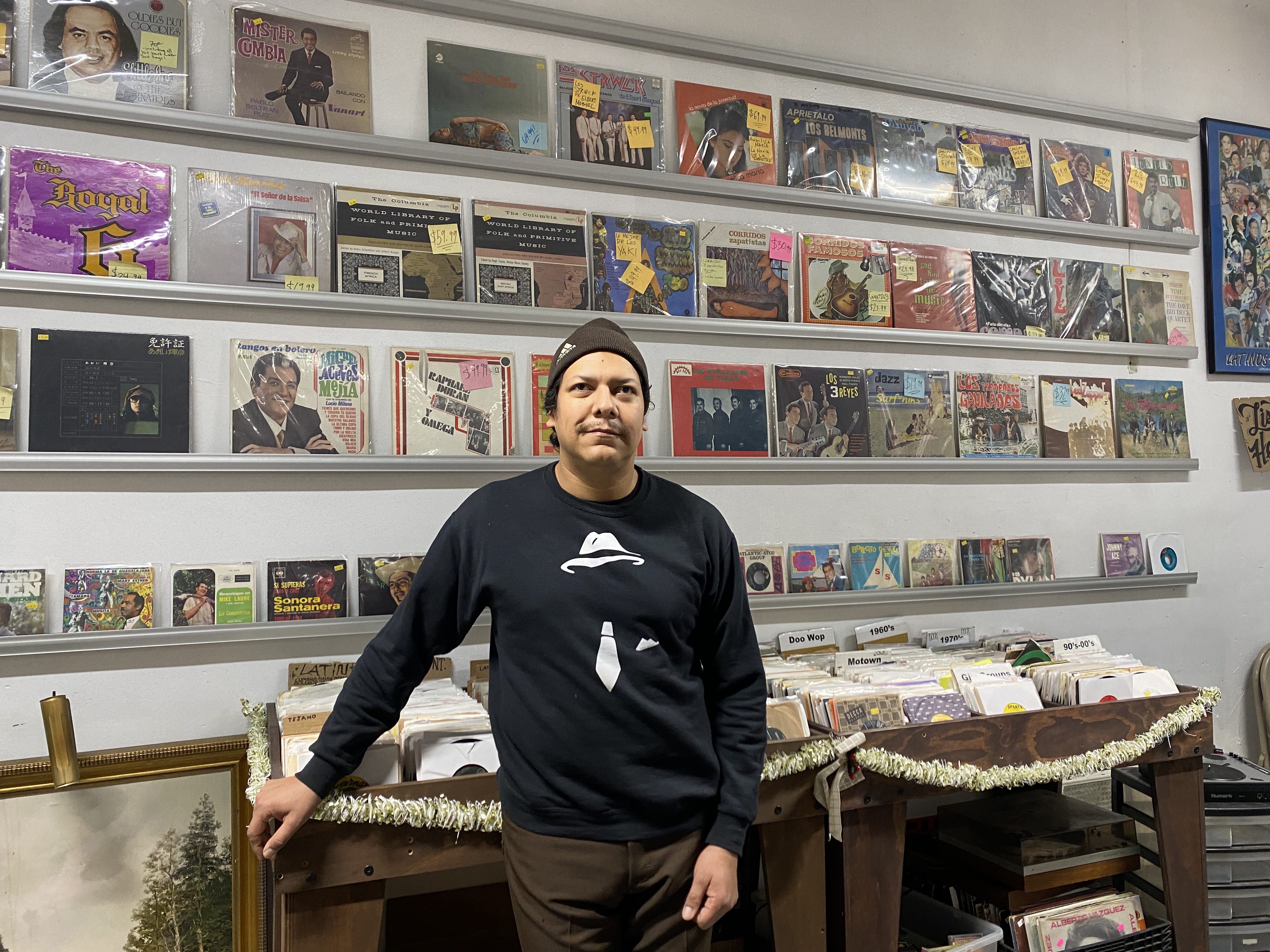An obsessive hunt for America’s early recorded music
The technology of recorded music is a lot older than vinyl albums spinning on ’60s-style turntables and singles — 45s — popping onto a jukebox needle.
The very earliest records held two to three minutes of music per side. They measured 10 inches of shellac, and were played on Victrolas that were more of a furniture design statement than a means to a musical end. The needles were so crude they gouged out the grooves on the records.
Moving at 78 rotations per minute, the remaining records are a technological relic that holds some of the earliest American music. There are few remaining metal masters, the engraving technology that can resuscitate the original recording sessions of, say, the Beach Boys’ “Pet Sounds.” So the record itself becomes an obsession for collectors who seek out 78s.
“It’s a high-stakes treasure hunt, in a way, because they’re saving these songs from certain death,” said Amanda Petrusich, who interviewed collectors for her book, “Do Not Sell at Any Price: The Wild, Obsessive Hunt for the World’s Rarest 78 rpm Records“.
The “wildness” includes Petrusich’s own scuba-diving adventure into the Milwaukee River, after getting a tip that some 78s might be wasting away underwater. Not to mention the hours collectors spend at yard sales, scouring eBay, and the high price a rare disc can command.
“There was a very public sale recently on eBay of a record for $37,000,” Petrusich said, adding, “That’s not uncommon.”
The stereotype of the collector was partially true and partially not, Petrusich found. Overwhelmingly male? Definitely. A kind of tight-knit fraternity? Check.
But older, sort of pale, doughy middle-aged men, à la Steve Buscemi’s character in “Ghost World“? Petrusich says “not so much.”
Some of the obsession seems to be driven not only by the hunt, rarity and preciousness of the music 78s may contain. It’s also a way for collectors to surround themselves with true antiques.
“The idea that these are men who feel in some way isolated by or excluded from modernity is very much true. They end up ultimately collecting these things as a way of insulating themselves from that, or slowing down the acceleration of culture.”
Fortunately for new fans of prewar blues or Creole music, a lot of songs have been digitized. For example, a song that Petrusich fell in love with, Blind Uncle Gaspard’s “Sur Le Bord De L’eau,” is on YouTube, iTunes and Amazon. Not least because it was included on the soundtrack to HBO’s “True Detective.”
Petrusich and her fellow collectors hope more of these songs survive their fragile 78 form.
“Not all old records are good, but there’s a sense that we don’t even know what has fallen through the cracks.”
Even so, she said, there’s a special quality to holding an old disc, hearing the scratches as it plays on the equipment it was first heard on.
Listen to the full conversation in the audio player above.
There’s a lot happening in the world. Through it all, Marketplace is here for you.
You rely on Marketplace to break down the world’s events and tell you how it affects you in a fact-based, approachable way. We rely on your financial support to keep making that possible.
Your donation today powers the independent journalism that you rely on. For just $5/month, you can help sustain Marketplace so we can keep reporting on the things that matter to you.



.jpg?w=350)














